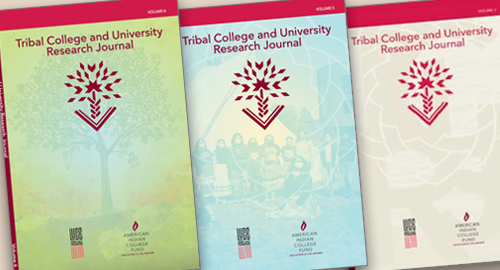For Immediate ReleaseNovember 18, 2022
ContactSarah Nadeausnadeau@americanprogress.org
RELEASE: CAP, American Indian College Fund Kick Off Series Demonstrating How Investment in Tribal Colleges and Universities Builds Stronger Native Communities.
Washington, D.C. — In the first column in a series on Tribal colleges and universities (TCUs), the Center for American Progress partnered with the American Indian College Fund to examine how expanded funding for Tribal colleges and universities would help protect highly endangered languages, address systemic poverty, ensure Native students have access to a wide range of careers, and upgrade school infrastructure to assure safe classrooms and housing for students. This new column delves into how each dollar invested in TCUs yields more than $5 in economic and health benefits—a glimpse at what expanded funding for TCUs could deliver to Native students and their communities.
“Tribal colleges and universities are not only training environmental scientists, engineers, nurses and social workers, in often rural, remote communities, they are also feeding families in need, running Head Start programs, and revitalizing languages and preserving cultural knowledge,” said Marcella Bombardieri, senior fellow at Center for American Progress and co-author of the column. “Policymakers deserve credit for stepping up support for TCUs since the beginning of the pandemic, but it will take more funding to allow TCUs to maximize the impact they have on the economy and health in their communities.”
“It’s no surprise that interest in Tribal colleges and universities has grown immensely over the past few decades, given alumni’s high praise for the culturally based programs that both immerse students in their languages, traditions, and cultures and prepare them for their careers,” said Dina M. Horwedel, director of public education at the American Indian College Fund and co-author of the column. “Tribal college alumni often go on to work in fields that serve their Indigenous communities and oversee their Tribal lands, which speaks to the nation-building role that TCUs play. Increasing federal funding for TCUs is an investment in strengthening their resources and making long-overdue upgrades to infrastructure.”
This column is the first in a series on Tribal colleges and universities. The upcoming three columns will investigate how programs at three TCUs serve both their students and their communities.
Read the column: “For Native Americans, Tribal Colleges Tackle the ‘Present-Day Work of Our Ancestors’” by Marcella Bombardieri and Dina M. Horwedel
For more information or to speak with an expert, please contact Sarah Nadeau at snadeau@americanprogress.org.
###
The Center for American Progress is a nonpartisan research and educational institute dedicated to promoting a strong, just and free America that ensures opportunity for all. We believe that Americans are bound together by a common commitment to these values and we aspire to ensure that our national policies reflect these values. We work to find progressive and pragmatic solutions to significant domestic and international problems and develop policy proposals that foster a government that is “of the people, by the people, and for the people.










